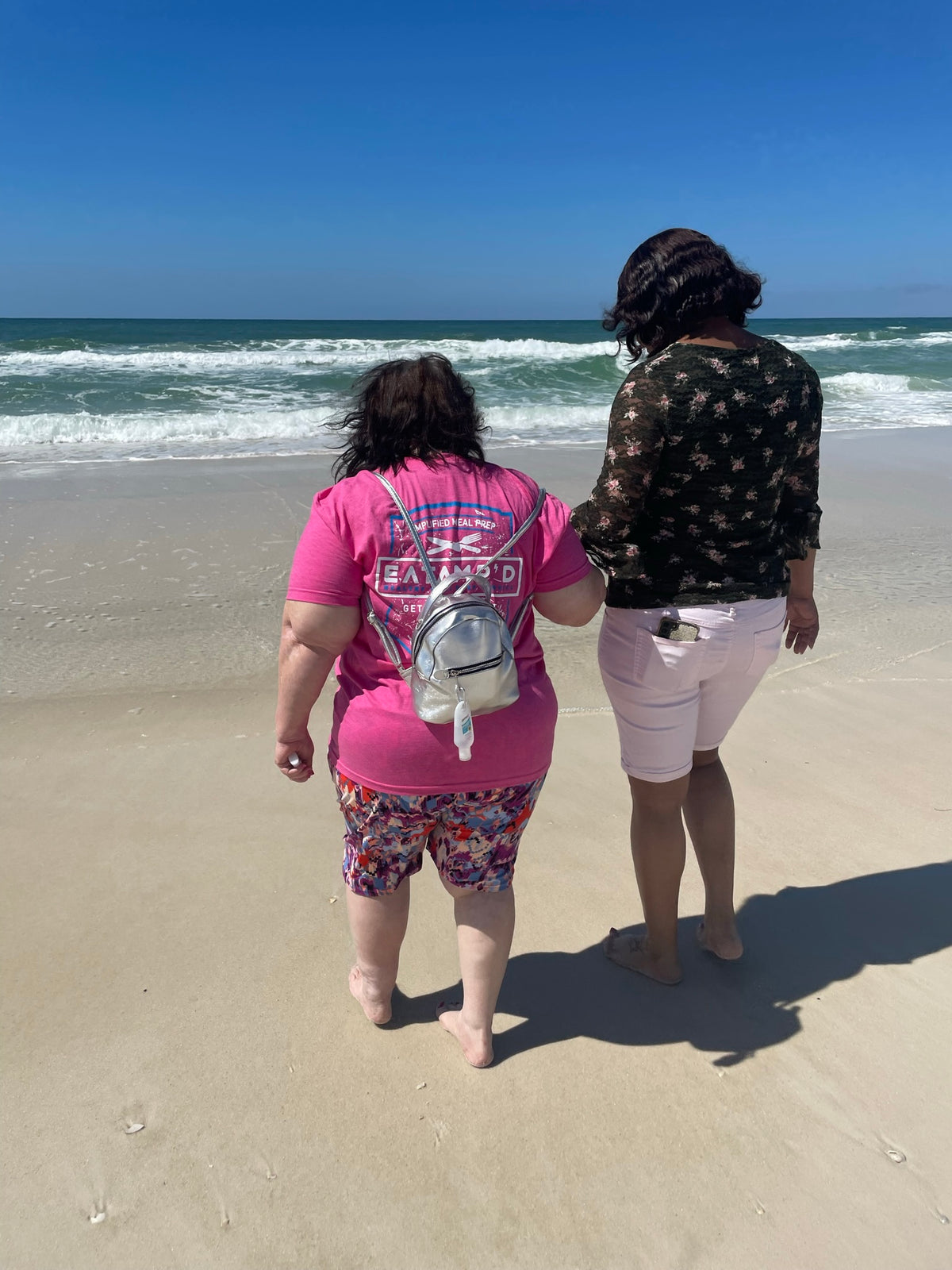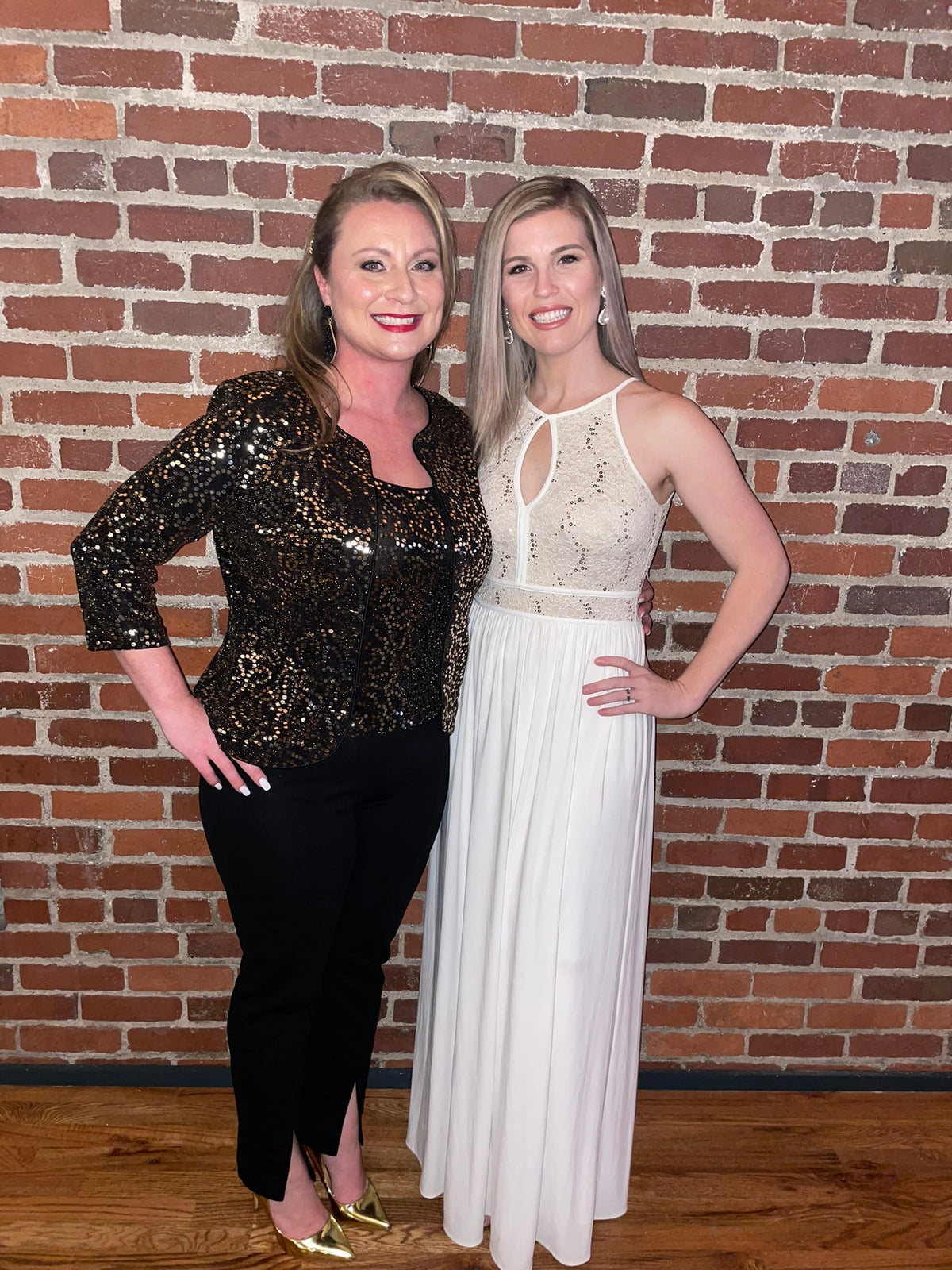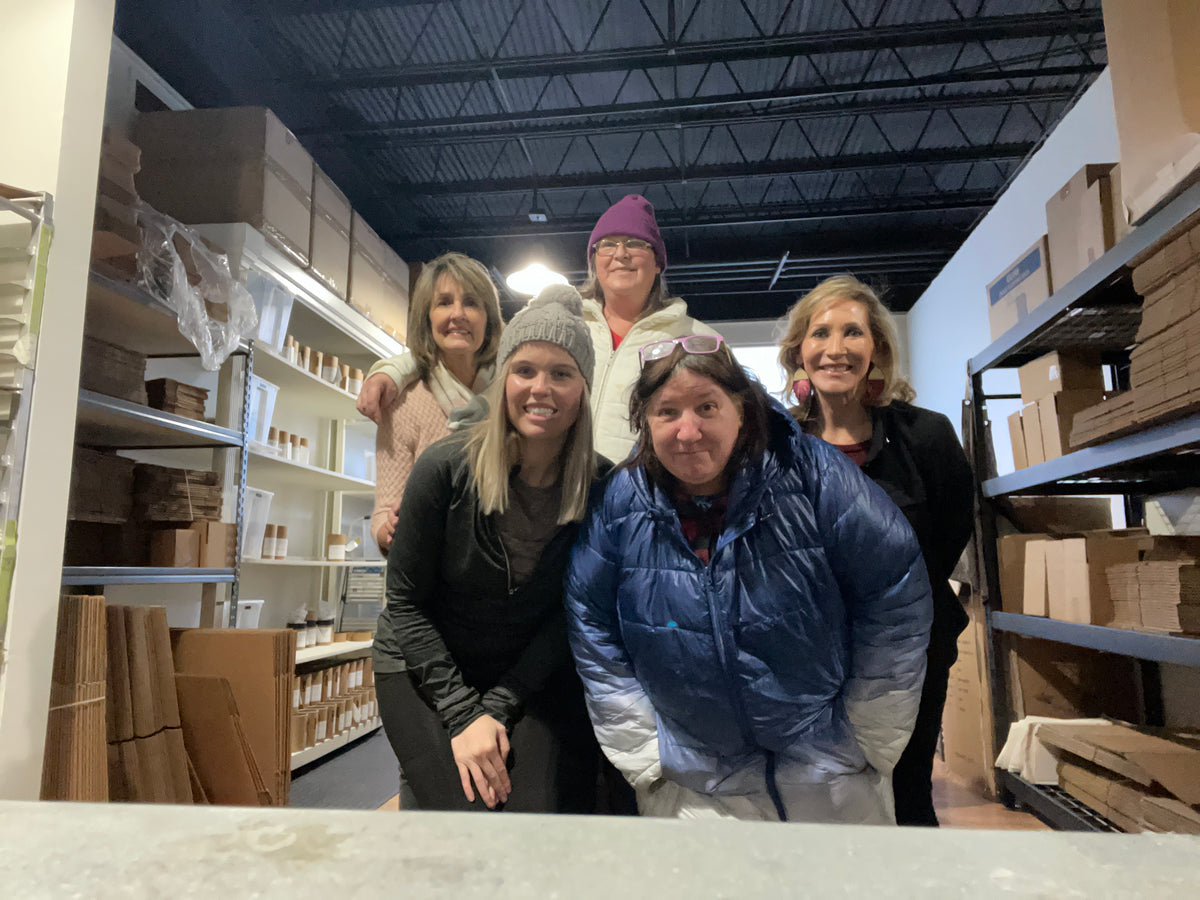Carol Wiley and A Way Out Ministries: A Cocoon of Healing

A pastor’s wife, Carol Wiley’s compassionate heart has always been a safe haven for women with broken spirits.
“Even prior to going into the ministry, when we were working with youth, it was the girls that had been raped, had been really hurt, they were the ones that kind of gravitated to me,” she said.
“God had just given me such great compassion for them, regardless of age. Because trauma is something you carry with you for a long, long time if nobody cares enough to intervene or tries to help.”
Carol’s empathy and faith have been the light and the compass that led her down the path to becoming Director of Victim Assistance at A Way Out Ministries. ”I do believe that the Lord, over time, knew where He was sending me.”
RE + NEW + ALL spoke with Carol about her work with A Way Out and how they help trafficking survivors rebuild their lives. She also shed light on the challenges survivors face, misconceptions people still hold about trafficking, and some surprisingly simple yet powerful ways people can help.
RE+ NEW + ALL: Could you share what led you to a career in counseling?
Carol Wiley: When I was college age, I went to work because my family didn't really have enough money for me to go to college, and I’d always wanted to go. Then, after we went into the ministry, the Lord opened the door.
Crichton College was being housed by the church where we were on staff, and they opened the door for staff and their children to attend. All you had to do was buy your books, and I jumped on it.
By that time, I knew I loved counseling, I was already doing counseling on church staff, pastoral counseling. I took every psychology course they offered. I just absorbed it, knowing that I wanted to know everything I could about human behavior and what sin does to a life. Because when we get hurt, we make decisions in life that are destructive.
RNA: And how did you become involved with A Way Out Ministries?
CW: I had graduated, and I was looking at two different options. Citizens for Community Values had started with a small group of women, helping dancers come out of the clubs, and they wanted a Christian counselor. So, I started working as a volunteer.
And these women just stole my heart again. It was an easy decision to turn down the other two career options I was looking at when they asked for someone to come on staff and write a program for the women. It was obvious these victims needed structure of some kind. So, in May of 2000 I began to write and put together what's known as the A Way Out program.
That's how God led me into it. I really believe with my whole heart that God ordained, that the purpose He had for my life was to love and to reach out to broken, hurting women. To help them understand the dignity they have in Christ.
RNA: What makes the 2-year recovery program A Way Out offers to trafficking survivors so unique?
CW: One of the biggest misnomers about addiction and sexual trauma is that you can heal somebody in 30 or 60 days. It doesn't even really give them a good jumpstart.
We provide everything they need while they're here. We put them in a cocoon of healing for two years with the goal of being able to stand pretty much on their two feet when they leave, so they can be a success, stay clean and sober, and not go back and be misused again.
I tell every woman that comes for an interview, “We're going to always treat you with dignity. Because you have a dignity that nobody has a right to touch, not even you, because you're created in the image of God. We will be hard on you sometimes, and we will be very loving, but you will never suffer someone making you feel like you're less than around here.”
I laugh all the time and tell the girls we don't believe in sloppy agape. Because love means accountability too. To really reach out and love these women the right way and provide the structure they need to deal with the different traumas they suffer, that's what we've done here.
RNA: What are some of the challenges trafficking survivors face during recovery?
CW: They need time because they have been pre-programmed for several things.
They struggle with being pre-programmed with the lie that sex is love and what they were created for. Childhood sexual abuse pre-programmed them to believe that's all they're good for. It's going to take time for her to begin to even entertain the idea that she's created for more.
A huge challenge once they leave that cocoon of healing is, “What do I really believe? Do I really believe what they taught? Is it really something I believe now, or am I still riding the fence to the point that I feel like I've got to have a man in my life?”
More women have failed because of that lie than they have because of drugs. We have had ladies that have relapsed. But when you talk to them, they say, “Well, I was lonely. I wanted to be loved.” It goes right back to ‘sex is love, and that's what you're for.’
RNA: What are some common misconceptions about trafficking?
CW: This almost seems so simple, but I think so many people still have the TV idea of trafficking. They see it as kids being brought from another country. That happens, of course, but they don't stop to think that it's in their own backyard. They don't stop to see what's going on; sometimes they don't connect that to trafficking.
Also, I think another thing people hang onto is they don't see prostitutes as being trafficked. And most of them are. Most of them have either prostituted for drugs and trafficking. If your body’s sold or you’re coerced into selling yourself as a commodity, that's trafficking. I think people don't really stop to connect the dots. They just say, “Oh, they chose to do that.”
Most of the women we've worked with, they would have walked in and said, “I'm a prostitute.” But when you really start digging into their stories, a lot of them have been prostituted by their families, even as kids. That’s trafficking. A lot of them were with a pimp and thought he was her boyfriend and called him that.
The more we get the word out and the more we get to go into even the churches and share the women's stories, that attitude changes, I think as people begin to hear and know the truth about it, then their attitudes do begin to change. So, there's still some misunderstanding, but it is getting better. I’m encouraged by that.
RNA: What’s the most rewarding part of your work?
CW: Because we are a faith-based ministry, the first thing that really lights my heart is when one of the women decides for herself that God is real and that He loves her. Then I know she’s on her way and able to understand the truth. And she can begin to dispel some of those lies she learned out there in darkness, that the enemy planted in her mind and heart.
I light up every time one of them has a strategic success. It could be as simple as making it through blackout for two months. There's a two-month blackout on the front end of the program, and they can't do anything or go anywhere except with staff. If they make it through that, that's huge.
Any success they make along the way, anything they complete, just absolutely thrills me to death. Because so many of them have never completed anything before they come. My heart gets filled up when I see them make even baby steps from the beginning and then move into making some giant strides that's going to benefit their life when they leave.
RNA: How has your partnership with RE + NEW + ALL benefited the women in the A Way Out program?
CW: Jobs are a real challenge, getting people to give them a chance. Because most of them have records when they come to us. It's not the pimps that get arrested; it's the girls. Some of the ladies come with such large fines, and we like for them to be fine-free when they leave us.
That’s where RE + NEW + ALL has been a blessing. They can start working part-time and building something to go on their resume. They also can start putting that money into a savings account. They can start paying on their fines, and then we can come alongside and pay some for them.
So, our partnership with RE + NEW + ALL has really been an answered prayer of mine for years. I've wanted something like that where they would have a chance to work and learn a skill and even a chance to stay on if that's what RE + NEW + ALL if they so desired after the two years.
RNA: What are some simple ways people can be of help to A Way Out and other recovery programs like yours?
CW: They can make an effort to become informed and know the truth, because there's all kinds of seminars and videos. So they could take an opportunity to become informed and learn more truth.
Secondly, I think sometimes people are hesitant to get involved because they think, “Oh, I'm not qualified.” You know what qualifications they need? They need a heart to help hurting women. They need to be teachable and willing to learn the truth about trafficking. And then they need to be willing to learn how to work with a victim.
You don't have to have a degree in trafficking to help. We need volunteers to mentor our women, and we train the mentors. We need volunteers that can do simple things, like give them a ride to work or to the doctor. We have volunteers that periodically bring a meal.
There's all kinds of ways people can get involved. Because the ones that give rides, they're in that car for 15-30 minutes with that woman. They get to find out several things about her, “Hey, she's just like me. She’s not hard to talk to.”
I call it tiptoeing into it. They can tiptoe into learning about trafficking and then be of great help. Every volunteer we have, we couldn't do it without them. We're small staff; we're basically a volunteer-run program.
And it means a lot on the other side of that coin. It speaks volumes to our ladies. They'll think, “Wow, that lady that’s never been where I've been cares enough to give me a ride to go to the doctor. That's really special.”
This is a huge war, but how are huge wars won? With strategic small battles. If we looked at each little piece of the puzzle that a volunteer is able to reach out to and give, that's strategic in winning the overall war.
Like with RE + NEW + ALL, each candle that goes out, it's got a girl's name on it, and someone out there is made aware there are trafficking victims that need help. That's strategic in winning the overall war.
For more information on how to volunteer with A Way Out Ministries visit www.awoministries.org



